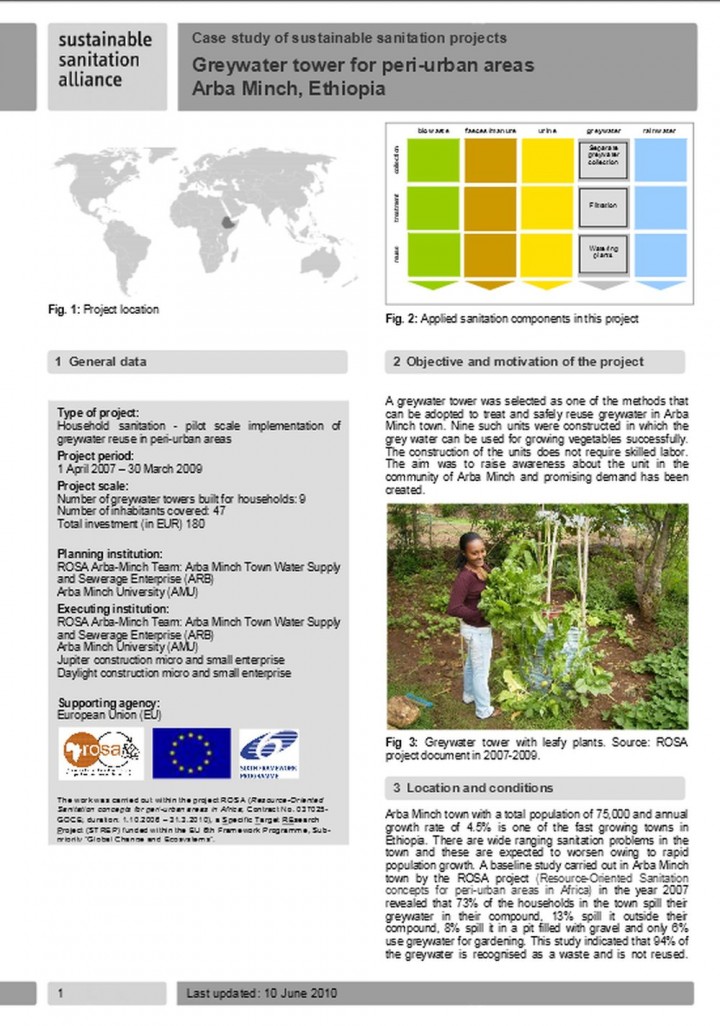Greywater tower Arba Minch, Ethiopia Case study of sustainable sanitation projects Shewa, W., Geleta, B. (2010)
Bibliographic information
Shewa, W., Geleta, B. (2010). Greywater tower Arba Minch, Ethiopia Case study of sustainable sanitation projects Sustainable Sanitation Alliance (SuSanA)
Filter / Tags
Constructed wetlandsGreywater or wastewaterPeri-urbanCase studies in SuSanA templateEnglish

